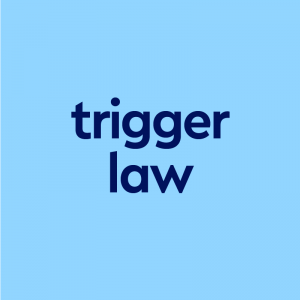Politics dictionary
trigger law
[ trig-er law ]
What is a trigger law?
The term trigger law is an informal name for a law that is written to go into effect when a specific event or condition occurs.
The term trigger law is typically used to refer to US state laws. In particular, it has been most commonly used to refer a number of state laws specifically written to prohibit or significantly limit abortion in the event of the overturning of the Supreme Court decision Roe v. Wade, which established abortion as a Constitutional right in 1973. In June 2022, the Supreme Court ruled in Dobbs v. Jackson Women’s Health Organization to overturn Roe v. Wade, causing trigger laws related to abortion restrictions to go into effect in a number of states.
However, the term trigger law is not only used in the context of abortion laws. For example, the term has been applied to several state laws enacted to decrease funding for Medicaid based on when certain federal policies take effect.
Typically, trigger laws specify what conditions need to be met for them to take effect. Some trigger laws are written to take effect immediately upon a certain condition being met, while others specify a certain amount of time before they take effect.
Where does trigger law come from?

Trigger law is an informal term—it’s not used in an official way. The word trigger is used in the sense meaning “anything, as an act or event, that serves as a stimulus and initiates or precipitates a reaction or series of reactions.” In other words, a trigger law is a law that only goes into effect when a particular condition “triggers” it.
Laws considered trigger laws existed long before the term came to be commonly used. For example, two years after Roe v. Wade, Illinois passed the Illinois Abortion Law of 1975, which stated that abortion would be illegal in the state if Roe v. Wade were ever overturned in the future. (That 1975 law was repealed in 2017—it did not take effect due to the overturning of Roe v. Wade.)
The term trigger law started to become commonly used during the late 2010s and early 2020s. Before and after Roe v. Wade was overturned, the term was often used discussion of abortion access and how state laws would change (or go into effect) after the ruling.
Examples of trigger law
Who uses trigger law?
The term trigger laws is most commonly used in the context of state abortion laws. However, the term is also sometimes applied to other laws written to go into effect due to a certain condition. The term is most likely to be used by critics of such laws.
Legally, this will take a few days to shake out in Louisiana, abortion rights lawyers have told me. But clinics have closed. Hundreds of appointments canceled. Surrounding states also have trigger laws, and those that don’t will be overbooked. This affects women in every state.
— Emily Woodruff (@emily_woodruff_) June 24, 2022
BREAKING: Planned Parenthood Association of Utah has filed a lawsuit to stop the state’s trigger law, which took effect last night.
The lawsuit argues that the law violates Utah’s Constitution. pic.twitter.com/bMGU3k98Z0
— Oriana González (@OrianaBeLike) June 25, 2022
The Supreme Court's decision to overturn Roe v. Wade and give individual states the choice of banning or allowing abortions will immediately affect 13 states that have trigger laws. https://t.co/ppj1MChGaQ pic.twitter.com/SeYIUewsM8
— The New York Times (@nytimes) June 24, 2022
Note
This is not meant to be a formal definition of trigger law like most terms we define on Dictionary.com, but is rather an informal word summary that hopefully touches upon the key aspects of the meaning and usage of trigger law that will help our users expand their word mastery.